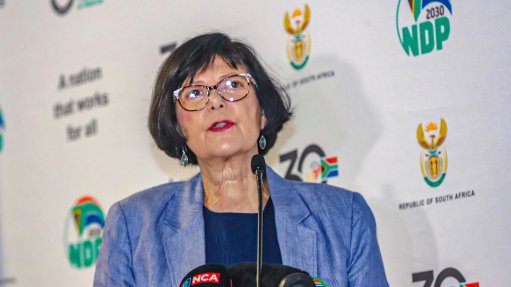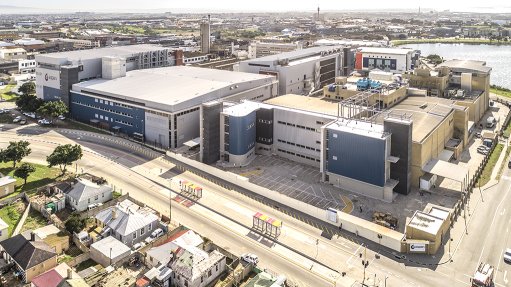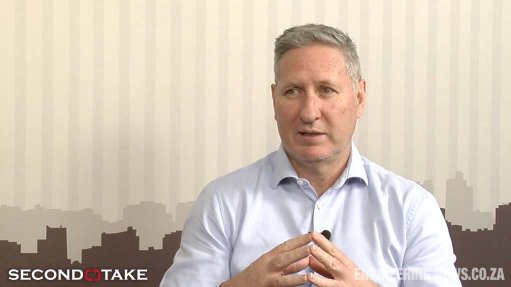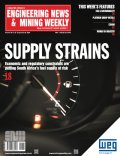OHS report calls for consolidation of legislation
Although South Africa has a progressive occupational health and safety (OHS) legislation regime, it needs to fast-track the process of consolidating the related legislation and create a national policy on OHS, the Department of Employment and Labour’s (DEL’s) ‘Profile of Occupational Health and Safety South Africa’ report shows.
The DEL on July 30 launched the report, which outlines the state of OHS in South Africa.
The report was commissioned jointly by the International Labour Organisation and the DEL, with contributions from various competent authorities and institutions, as well as professional bodies.
It focusses on the profile of OHS in workplaces and provides a historical analysis of OHS in the country.
Speaking during the virtual launch of the report, Deputy Employment and Labour Minister Boitumelo Moloi said the launch of the report was a milestone in the country’s history.
She acknowledged that fragmentation of legislation and working in silos was harming efforts towards achieving ‘zero harm’.
Moloi said the OHS legislation that was currently being amended also needed to be strengthened to protect workers.
The report contains a number of key themes and insights that came out of the confidential, semi-structured in-depth interviews with 34 purposefully selected participants.
Themes identified in the interview responses include Covid-19 opportunities; enforcement of legislation; poor compliance and OSH committees; gender and the informal sector; complex legislation; poor reporting yet increasing claims and lack of awareness; partnerships; human resources challenges for inspection; better enforcement in the mines; the importance of safety and occupational health; aligning the Mine Health and Safety Act (MHSA) and the Occupational Health and Safety Act (OHSA); the length of time to amend legislation; OHSA being dependent on the definition of an employer and employee; and the role of the South African Local Government Association and municipalities.
The participants represent seven stakeholder groups – worker organisations, employer organisations including those in the informal economy, government departments, professional bodies, bargaining councils, standardising bodies and training institutions.
According to the report’s respondents, the legislation generally excludes the informal economy and domestic workers. The respondents also viewed legislation as punitive.
They viewed government’s role in OHS as a setback in that government departments were significant defaulters and were noncompliant with legislation. Above all, they felt government departments that regulated OHS worked in silos, with little coordination and collaboration.
The report states that the enforcement of legislation was perceived as a challenge, with poor compliance by employers and serious limitations in human resources capacity for inspections. Enforcement was perceived as generally reactive.
Findings from quantitative data point to good efforts in inspections by the DEL despite the fact that they are under-resourced, Moloi said.
In 2019, over 28 000 inspections were conducted by less than 300 inspectors.
The report says inspections show poor compliance by the wholesale and retail sector and the construction sector.
The wholesale and retail sector recorded the highest number of Compensation Fund claims, which exceeded even that of the police and security services. The iron and steel industry also had a high number of incidents.
The monetary value of claims to the fund has been rising over the years, the report shows.
Participants highlighted that Covid-19 had revealed opportunities that South Africa had not explored before, such as using technology to improve OHS.
Participants were of the view that South Africa had good legislation. They praised the comprehensiveness of the OHS legislation but slated the lack of enforcement.
The report notes that the current OHS legislation neglects the informal economy, even though research shows that this part of the economy is growing.
According to participants, inspections were viewed as punitive. According to them, the situation was further compounded by the perceived disjuncture and duplication of OHS that was implemented and enforced through the MHSA and that which was enforced through the OHSA.
The report notes an urgent need for stakeholders to receive reliable and informative OHS statistics. Some participants pointed out that the OHSA did not explicitly express the right of workers to refuse to do dangerous work.
They claimed that it was common for workers to be dismissed for refusing to do work that they found to be dangerous, especially in the farming sector.
Participants pointed out poor reporting in spite of increasing number of claims and also highlighted that the number of inspectors in relation to the number of enterprises was a big concern, the report states.
Participants expressed concern that there was a role that municipalities should be playing in terms of providing basic facilities for the informal sector.
The OHSA is currently under review and it is at a Bill stage – with inputs for public comments closing on July 30.
Business Unity South Africa director Deidre Penfold commented during the launch event that the private sector was committed to finding mechanisms to drive compliance with legislation and regulations through partnerships with the key and relevant government entities.
Black Business Council CE Gregory Mofokeng said the number of workplace incidences still remains unacceptably high and that the organisation wants to work closely with government to expose companies that do not adhere to legislation.
Federation of Unions of South Africa secretary general Riefdah Ajam noted that the report was long-overdue and that Covid-19 had "exposed shortcomings in our workplaces"; and that the role of the inspectorate had become increasingly critical.
Comments
Announcements
What's On
Subscribe to improve your user experience...
Option 1 (equivalent of R125 a month):
Receive a weekly copy of Creamer Media's Engineering News & Mining Weekly magazine
(print copy for those in South Africa and e-magazine for those outside of South Africa)
Receive daily email newsletters
Access to full search results
Access archive of magazine back copies
Access to Projects in Progress
Access to ONE Research Report of your choice in PDF format
Option 2 (equivalent of R375 a month):
All benefits from Option 1
PLUS
Access to Creamer Media's Research Channel Africa for ALL Research Reports, in PDF format, on various industrial and mining sectors
including Electricity; Water; Energy Transition; Hydrogen; Roads, Rail and Ports; Coal; Gold; Platinum; Battery Metals; etc.
Already a subscriber?
Forgotten your password?
Receive weekly copy of Creamer Media's Engineering News & Mining Weekly magazine (print copy for those in South Africa and e-magazine for those outside of South Africa)
➕
Recieve daily email newsletters
➕
Access to full search results
➕
Access archive of magazine back copies
➕
Access to Projects in Progress
➕
Access to ONE Research Report of your choice in PDF format
RESEARCH CHANNEL AFRICA
R4500 (equivalent of R375 a month)
SUBSCRIBEAll benefits from Option 1
➕
Access to Creamer Media's Research Channel Africa for ALL Research Reports on various industrial and mining sectors, in PDF format, including on:
Electricity
➕
Water
➕
Energy Transition
➕
Hydrogen
➕
Roads, Rail and Ports
➕
Coal
➕
Gold
➕
Platinum
➕
Battery Metals
➕
etc.
Receive all benefits from Option 1 or Option 2 delivered to numerous people at your company
➕
Multiple User names and Passwords for simultaneous log-ins
➕
Intranet integration access to all in your organisation

















